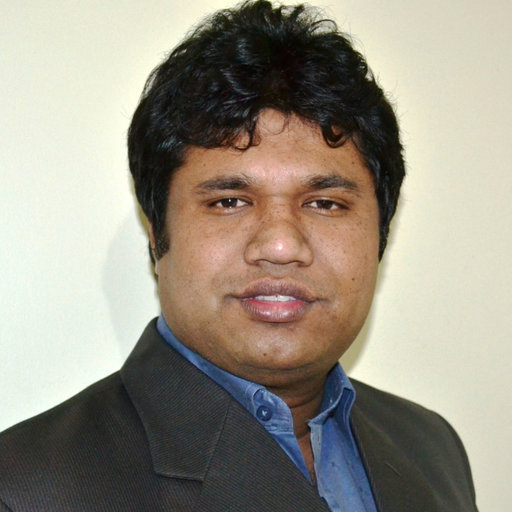Keynote Speaker Ⅰ

Prof. Bram Hoex
University of New South Wales, Australia
Biography: Professor Bram Hoex completed both an MSc and PhD degree from Eindhoven University of Technology in the Netherlands in 2003 and 2008, respectively. From 2008 to 2015, he worked at the Solar Energy Research Institute of Singapore (SERIS) at the National University of Singapore (NUS) as a Group Leader and from 2012 also as Director. In 2015, he joined UNSW, where he is currently a Deputy Head at UNSW's School of Photovoltaic and Renewable Energy Engineering. His research is multifaceted, focusing on the development and application of nanoscale thin films to enhance renewable energy devices, the reliability of solar cells and modules, the financial and performance modelling of large-scale solar farms, and the application of artificial intelligence in material science. He has published over 250 scientific papers and is best known for his groundbreaking work on aluminium oxide for crystalline silicon surface passivation, which is now the de facto standard for industrial PERC and TOPCon solar cells. His work has received various international recognitions, including the 2008 SolarWorld Junior Einstein and 2016 IEEE PVSC Young Professional awards. Renewable Energy World listed him in the “Solar 40 under 40 list” globally in 2018.
Speech Title: From the Lab to the Field: Decoding Degradation at Cell, Module, and Field Level for Commercial Photovoltaic Technology
Abstract: In the photovoltaic industry, the emphasis is often almost solely on enhancing solar cell and module efficiency. However, the most important metric for evaluating technology's economic viability is the levelized cost of electricity (LCOE), which necessitates not only high efficiency but also extended module longevity. Achieving the lowest possible LCOE requires maintaining annual performance degradation rates below 0.5% per year.
This study will go into the stability of heterojunction and TOPCon solar cells and modules which are now dominating the photovoltaic market, with a special emphasis on understanding and mitigating corrosion-induced degradation. We introduce advanced accelerated cell testing methodologies that offer rapid assessment which are up to a hundredfold faster than conventional module-level testing. This acceleration is crucial for timely insights into degradation mechanisms and their mitigation. Furthermore, we detail our approaches to cell and module-level degradation prevention and present a comprehensive global-scale modelling of selected degradation modes.
Keynote Speaker Ⅱ

Prof. Apel Mahmud
Flinders University, Australia
Biography: Apel Mahmud is currently working as a Professor in Electronic and Electrical Engineering at Flinders University. Prior to joining Flinders University, he worked as an Associate Professor in Electrical Engineering at Northumbria University Newcastle, UK from October 2021 to March 2024. At Northumbria, he was also the Head of Electrical Engineering. Before joining Northumbria, he worked as a Senior Lecturer (from and Lecturer in Electrical & Renewable Energy Engineering at Deakin University, Australia. He also worked as a Lecturer in Electrical & Electronic Engineering at Swinburne University of Technology, a Research Fellow at the University of Melbourne , and a research publication fellow at the University of New South Wales.
In the UK, he has been a part of a £1.85 million research project on the virtual power plant funded by the EPSRC. In Australia, he has been successful in obtaining seven externally funded projects, which attracted more than AUD12.6 million in total.
So far, he published around 300 research articles, including around 130 high quality journal papers. His research interests include nonlinear control of power electronic interfaces for renewable energy applications, power system dynamics (modeling, stability, and control), power system fault analysis for bushfire mitigation, microgrids (AC, DC, and hybrid AC/DC), grid integration of renewable energy sources (small- and large-scale solar and wind), transactive energy management and optimization for microgrids, mmart metering and smart grid data analytics, energy storage systems (small- and large-scale), and nonlinear control theory and applications.
Speech Title: Smart Energy Management Systems for Future Power Grids
Abstract: The integration of intermittent renewable energy sources poses several challenges to both system operators and consumers. One of these major challenges is to properly utilise different resources (such as renewable power generation sources and battery energy storage systems) to achieve maximum techno-economic benefits, for which energy management systems play a crucial role. This talk will cover key aspects of smart energy management systems for future renewable energy-dominated power grids. These aspects will include the optimal resource utilisations, energy sharing, energy trading and control to tackle technical and economic challenges. Moreover, some practical applications of energy management systems (which are currently under trials in Australia and the UK) will be discussed to reflect the industry relevance.
Keynote Speaker Ⅲ

Professor Thorsten Trupke
University of New South Wales, Australia
Biography: Professor Thorsten Trupke holds a PhD in Physics from the University of Karlsruhe, Germany, and is a Professor at the School of Photovoltaic and Renewable Energy Engineering at the University of New South Wales (UNSW). At UNSW, he leads a dynamic research team comprising staff, students, and postdoctoral fellows, contributing to world-leading advancements in Photovoltaic (PV) science and technology.
Professor Trupke has made significant contributions across a broad spectrum of PVresearch, including pioneering third-generation PV concepts such as the integration of single-junction solar cells with up- and/or down-conversion mechanisms. However, his most impactful work has been in the field of silicon sample and device characterization. He is the inventor of Photoluminescence (PL) Imaging, a breakthrough technology that has become a global standard in PV research, development, and high-volume manufacturing. This innovation was successfully commercialized through BT Imaging, a Sydney-based company he co-founded, where he served as Chief Technology Officer until late 2022.
Currently, Professor Trupke's research focuses on adapting PL imaging for field testing of crystalline silicon PV modules installed in solar systems and under full daylight conditions. This work continues to push the boundaries of PV characterization technology, ensuring its applicability at scale in real-world solar installations.
A Fellow of the Australian Academy of Technological Sciences & Engineering (ATSE), Professor Trupke's contributions have been recognized by numerous prestigious awards, including the ATSE Clunies Ross Innovation Award in 2019 and the IEEE William R. Cherry Award in 2021.
Speech Title: Photoluminescence imaging for large scale quality assessment of solar farms
Abstract: Luminescence imaging has become a cornerstone in the characterization of photovoltaic (PV) devices, particularly crystalline silicon solar cells and modules. Today, virtually every solar cell and PV module undergoes final quality control at the end of the manufacturing process, using luminescence imaging to identify performance-limiting defects. This technology is also highly effective for field testing of PV modules, especially in large, utility-scale solar power plants, where early detection of defects is critical for maintaining long-term system efficiency and performance, and in order to detect any systemic issues with module quality or with module longevity early on.
Recent advancements in photoluminescence (PL) imaging, specifically daylight PL (DPL) imaging, have further expanded the possibilities for field-based quality assessments of PV systems. Using the sun as the sole excitation source, our team has demonstrated how DPL can be applied in real-time, full daylight conditions. This presentation will review various techniques for DPL image acquisition, with a focus on a groundbreaking approach where DPL images are captured via aerial drones. This innovation enables the inspection of up to thousands of modules in a single image, drastically scaling up the potential for efficient, cost-effective and large-scale solar farm monitoring.
We will delve into the fundamental principles behind several DPL imaging approaches and illustrate their application through image data from Australian utility-scale solar farms. These examples will highlight DPL's capabilities in assessing the quality of solar assets, detecting specific defects such as cell cracks, and providing systematic, quantitative analysis of module degradation across solar assets.